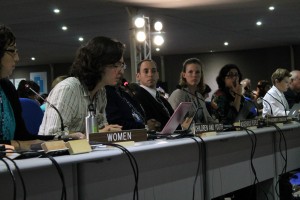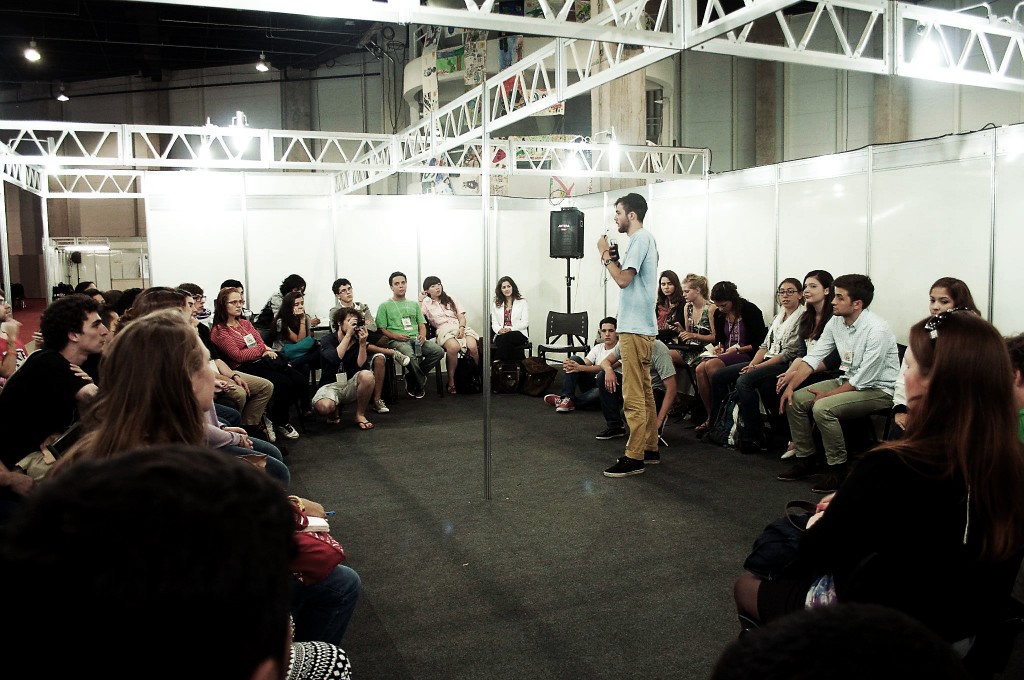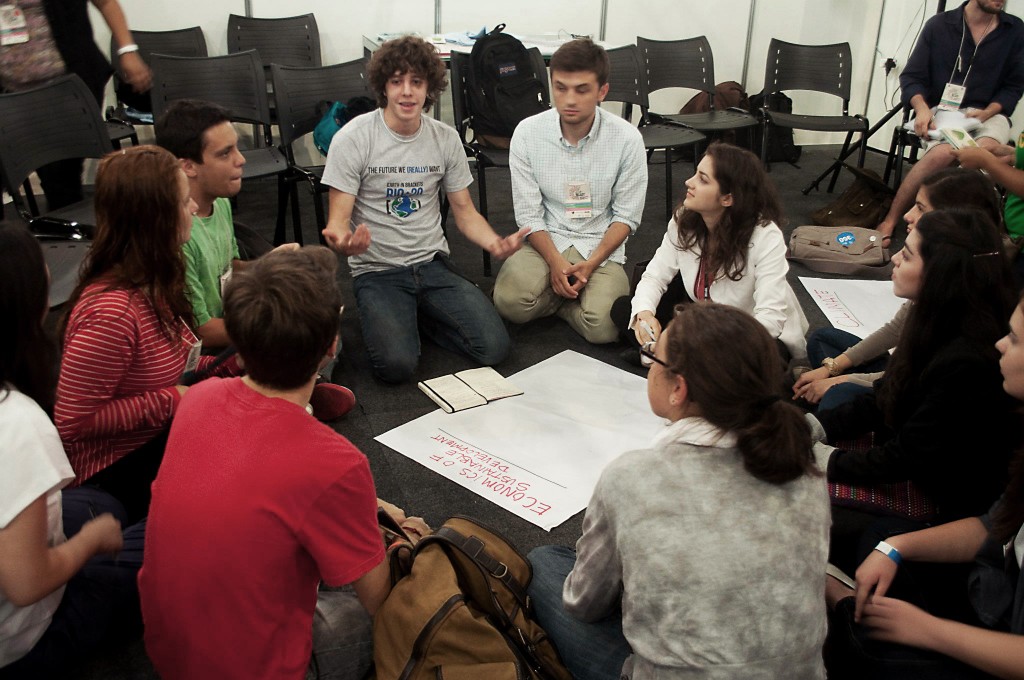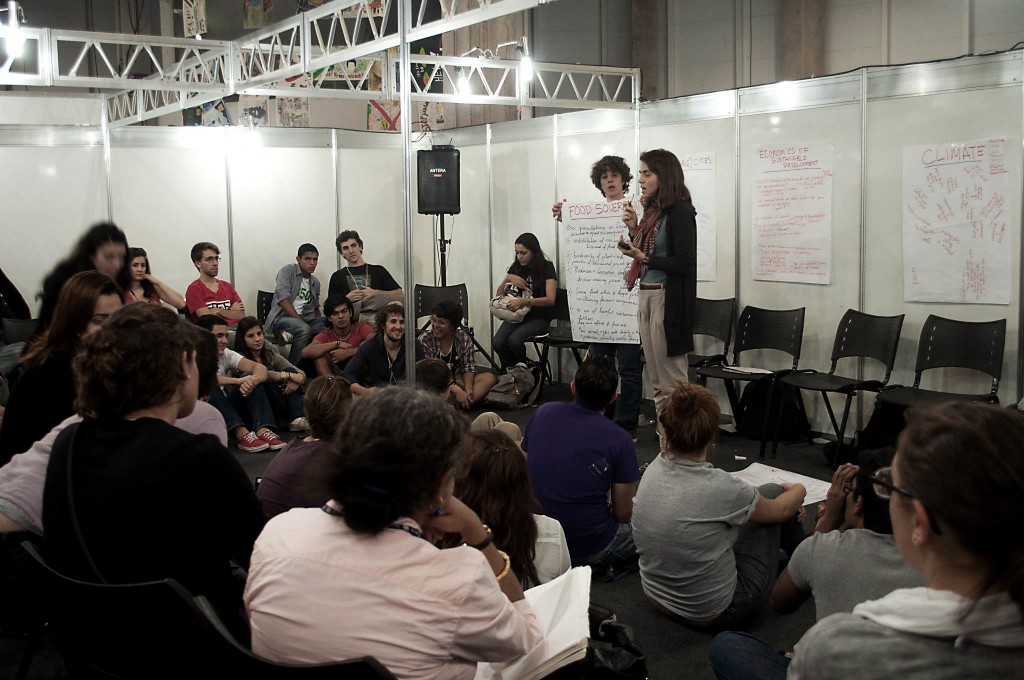A conversation with a delegate
By Jivan Sobrinho-Wheeler
The shuttle to the UN conference center only stops in front of the major hotels, where the important country delegates are staying. Hot air rises to upper-income accommodation. After the walk or taxi ride to the nearest hotel, it’s another hour by bus to get to the convention center. Most days I think that time will probably be occupied by sleep, but today I happened to sit next to a country delegate from a small island nation.
After a little exchange he asked with what the youth perspective was on the conference. I said unfortunately it wasn’t going to be like the transformative outcome we had from the original summit in 1992. A lot of civil society expected the negotiation to be a complete failure so if there was some sort of major agreement it would bring a lot of excitement. In turn he explained the context was different this time around. In 1992, the Soviet Union had just fallen, the economy was okay, and there was bounty of goodwill between nations and shared hope for a more united, progressive future. This time it’s different: the EU is on the rocks, the US is eking out a recovery, and developing countries are more than willing to assert their power on the world stage. There is always urgency at environmental negotiations, but if there is an emergency – as most youth at the conference believe – is up for debate between nation-states.
Nobody is going to say no to the green economy, he pointed out, even if no one is really sure exactly what a “green economy” is, or what it would mean. For the poor countries, it means development, and for the developed countries it’s a way to kickstart growth in their struggling economies. His country is prepared to agree on a vague concept with the knowledge that it will be fleshed out by the UN later on.
The two of us began to move beyond the text. He said, people would be surprised when you talk to a delegate one-on-one, like we were doing on the bus, how open they are about what needs to be done to reach international cooperation on a better future for all. But when they’re representing their country on the floor they push the process in every way they can to exploit the peculiar agenda of their country. That is the way international negotiations work.
To flesh out his point a little more he spoke about his time a diplomat as his country’s mission in New York. When he was in that city he was amazed at how a person gets ripped off at every corner, nickel-and-dimed. When he visited Washington D.C. once, they told him the museums were free, and he made them repeat this four times to be sure he understood. Because in New York he had to pay for everything. It was also in New York he saw a battery powered car that was built in 1914 when he was invited to visit the Rockefeller’s mansion. The technology was never pursued further because oil was so cheap and corporations like the Rockefellers were making a lot of money from its sale and distribution on a massive scale. But this is how negotiations between countries work, pushing hard for each and every one of your negotiating points and get every concession you can from your fellow countries. And often the power and money is concentrated in the hands of a few and they guard it fiercely.
The nickel-and-diming and the hoarding, the costs and the calculations, the history and the hope. It may be worth staying awake on that bus ride.






